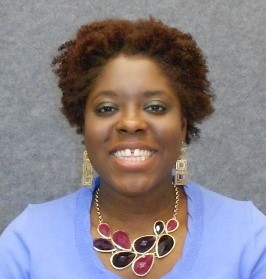 Kimberly Rousseau-Simmons wants to change the world in a way that’s more tangible than just watching from behind a desk.
Kimberly Rousseau-Simmons wants to change the world in a way that’s more tangible than just watching from behind a desk.
“I transitioned because the work I was doing was not rewarding for me,” she said. “I wanted something new, wanted something different. That’s when I started to explore other careers.
She ultimately landed on occupational therapy.
The New Jersey native is now in her second year in the occupational therapy program at Colorado State University. Up until this point, she said her career path has included everything from nearly a decade in the banking industry to a master’s degree in communication to a stint teaching Jazzercise.
Over the summer, Rousseau-Simmons did field work for Mosaic, an organization that works with people who have physical and intellectual disabilities. She helped clients do things many of us take for granted like showering or going to the store.
Rousseau-Simmons also worked with the Dawn Clinic in Aurora, which offers free care for people without health insurance. This includes people who have had strokes, heart attacks, gunshot wounds and other conditions that would usually require multiple hospital visits.
“I worked with a patient who had a stroke and was paralyzed on their right side,” Rousseau-Simmons said. “So I worked with them to do joint mobilization to try and loosen up the tightness in their arms so they can reach and get back to doing some functional tasks independently like they did before their stroke.”
She helped that patient relearn activities like putting on a shirt or putting food away in the pantry — which are much more difficult when you can’t move your arm very well.
“This patient was so happy to finally reach above their head,” she said. “They gained a new sense of independence and was smiling from ear to ear.”
“That’s the main thing about occupational therapy: that you try to improve people’s function as much as possible, so I try to take on a diverse caseload of patients to build my skills to help people in a variety of ways in their day-to-day life.”
How a drive through the Rust Belt inspired big ideas
After graduation, Rousseau-Simmons said she wants to begin her occupational therapy career at a rehabilitation clinic. Her other plans include starting her own business.
The idea for this was inspired by her time living in Ohio with her husband.
“My husband and I kind of traveled around, and would just kind of see a lot of small towns that used to be very industrial,” Rousseau-Simmons said. “When that factory or industry decided to leave, it devastated the town and it went from a thriving, middle-class town to abject poverty almost overnight.
“So seeing that and knowing that happened in so many communities … I mean, a large company is not going to be a savior.”
She said that’s why she wants to start a consulting company to help diverse members of the community start their own businesses. Rousseau-Simmons said she’s someone who always has a “side gig” and extra streams of income, and she wants to empower others to do the same.
“It’s easier for community to thrive when they’re run by local businesses and not some large entity calling the shots,” Rousseau-Simmons said.
She recently won a $5,000 2021 Black Leadership Scholarship from Zipwhip and the National Black MBA Association for an essay about her experiences and business plan.
‘She was the first student to talk’
Anita Bundy, a professor and the department head for CSU’s occupational therapy program, said Rousseau-Simmons has distinguished herself from the get-go. She’s also been the first to ask tough questions.
“The very first orientation that we did, we asked: ‘What questions do you have?’” Bundy said. “And Kim’s first thing was: ‘What do you do with diversity?’”
“She was the first student to talk, and the first thing was a challenge to us about diversity and inclusion and everything.”
Rousseau-Simmons said she thinks diversity and equity are as important to a society’s health as more physical aspects, and that’s something she’ll focus on after graduation.
In addition to consulting, she said she also wants to make a line of accessible products.
“It doesn’t feel like work, and that’s the best part,” Rousseau-Simmons said. “Before, when I was working in the bank, it felt like work. Dragging myself out of bed in the morning, trying to get myself to go there, spending eight hours staring at a computer screen. Then I go back home, rinse and repeat.”
“I definitely feel more alive, more invigorated, I want to help as many people as possible and have tools to do it.”
The Department of Occupational Therapy is a part of CSU’s College of Health and Human Sciences.